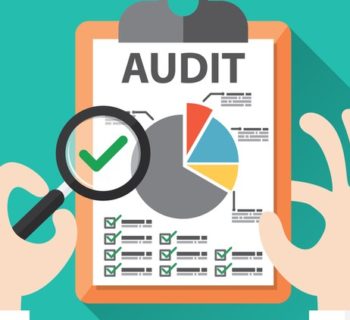For many Americans, money is associated with having “peace of mind” and is often placed as a top priority in their life. While this shouldn’t necessarily be the case, the fear of not having enough money can lead to high levels of worry, stress and anxiety. Not only can this be a catalyst for individual challenges and even stress related health issues, money is often cited as a leading cause of relationship challenges and divorce.
So why does money cause so many issues for so many people?
The first reason is obvious. When individuals and families do not have sufficient income and resources to meet their necessities, it is understandable that this would cause high levels of stress and worry. In this case, developing a plan to work through cash flow challenges, debt reduction and planning for the future may help.
However, for those that are fortunate enough to have enough money to cover the necessities of life, many still do not feel confident in their ability to save enough for retirement, plan for education costs, pay down liabilities and generally maintain their lifestyle. In fact, some researchers in this area have suggested that many people indicate that their measuring stick of what it means to be considered “wealthy” is generally some arbitrary level above their current wealth. For example, according to a prior Washington Post survey, people who live in households making less than $50,000 said that an income of $200,000 would make you rich, while respondents with incomes between $50,000 and $100,000 stated that you'd need $260,000 to be rich. Finally, people making over $100,000 said they wouldn't feel rich unless they were making $500,000 or more per year.
Money and happiness
Interestingly, researchers from Purdue University discovered that it might actually be possible to earn too much money, as far as happiness is concerned. They noted in the study that emotional well-being and life satisfaction actually declines after reaching $95,000 of income, partially due to the start of social comparisons and unfulfilling material pursuits beyond that level of wealth.
In another interesting twist, the Charles Schwab Modern Wealth Index survey noted that the amount needed to be considered wealthy also increases as we age. For example, Millennials felt that a net worth of $2 million was the amount required to be wealthy while Boomers indicated that they required $2.7 million to feel wealthy, a 35 percent increase. The fact is, some people view wealth as being relative to their current economic position and for many, it never seems to be enough.
As our wealth grows the target keeps moving higher. I have noticed in my own work that many people have cited that they would feel wealthy at twice their current net worth. For example, an individual with $500,000 would feel wealthy at $1 million, a person with $1 million in assets would feel wealthy if they had $2 million while someone with $5 million would feel wealthy if they had $10 million. In some respects, when it comes to money, many people are wired to feel as though they never cross the finish line of having enough. This endless pursuit of money can lead to misplaced priorities where the emphasis is on the acquisition of financial assets rather than on meaning.
How to overcome the meaningless pursuit of more
The first thing to consider is what is your “why in life”? Why are you building wealth? What are your goals for today and the future for you and your family? It is important to remember that money is simply a tool to focus on the things that really mean most to you. Unfortunately, many people fail to uncover what really does mean most. Family, friends, giving, experiences, travel, spiritual growth – the list of potential priorities goes on and on. It is important to remember that we cannot take our wealth with us. As someone once said, “I have no ambition to be the richest person in the cemetery.”
After determining your goals, it is critical to assess what it would take to be on track. The fact is, people often spend more time researching the next cell phone they are going to purchase than they do planning their financial life. Sometimes this can be due to not wanting to face the reality of the numbers or feeling like it may not be possible to develop a plan that is sustainable. Interestingly, the less time we spend on our finances, the more space it occupies in our life, often feeding the stress that can come from being uncertain whether we "have enough".
While addressing your finances can seem overwhelming at first, doing so can help lead to feeling more confident in the future. Clearly identifying the key steps to take that will help propel you toward your future goals is an important part of the process. Understanding when you have enough resources to reach your goals can also help empower you to make better financial choices about the length of your career, how you spend and share wealth, where you live and the experiences you pursue.
For many people, the pursuit of money is really about the perceived pursuit of “peace of mind” and security. Understanding what it takes to be “on track” and when you have acquired sufficient assets to reach your goals can help you to reassess your priorities and live a life with meaning. Since everyone’s circumstances are unique, consider speaking to your adviser to assess the pursuit of your individual goals.
Kurt J. Rossi, MBA, CFP®, CRPC®, AIF® is a CERTIFIED FINANCIAL PLANNERtm Practitioner & Wealth Advisor. He can be reached for questions at 732-280-7550, kurt.rossi@Independentwm.com, www.bringyourfinancestolife.com & www.Independentwm.com. LPL Financial Member FINRA/SIPC.










